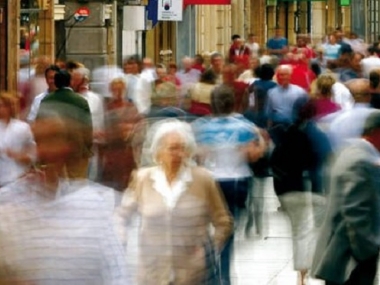CARD4ALL REFLECTION ON HOW A CITY CARD CAN BE USEFUL IN A PANDEMIC CRISIS
Edited on
20 April 2020Cities that are open, transparent, collaborative and adopt comprehensive responses are better equipped to manage pandemics than those that are not.

The city card is personal and non-transferable, replacing other identification systems like the Library Card, Transport Card or others related to municipal services. Gathering all services in one single card, means saving time and an overall efficient simplification.
There are a lot of data available on the city card that can help cities to manage pandemics and lower-case fatality rates and excess mortality. However, even in a public health crisis the use of data about people is sensitive, but as long city government has a legitimate use and follows privacy guidelines, it’s usually OK! There’s always that boundary with, what do we need to know?
But, leaving the privacy aspects out of this reflection, that later can be addressed in another article, the focus is on how the city card can be useful in the adoption of critical measures such as, the combination of proactive surveillance, routine communication, rapid isolation and personal and community protection (e.g. social distancing).
The city card assumes high relevance in the ability to communicate and implement emergency response plans, which is also essential, as is the availability, quality and accessibility of hospitals, clinics, care facilities and essential equipment.
An immediate feature is the “contactless” of the card, that decreases the potential infection of contaminated surfaces in daily activities such as payment of buses, access to public buildings, use of printers in public offices, activate elevators and many others. These uses of contactless accessibility could be easily exported to private companies or even (with a little investment) to private buildings.
The city card can be used for patient and staff tracker, public health surveillance, staff-augmentation support, COVID-19 registry, COVID-19 dashboard, a capacity-planning tool and a financial-impact and analysis resource. A concrete example can be the capability to identify the location of patients who have tested positive for COVID-19 as well as other patient, clinician and staff interactions and exposures to allow for infectious disease surveillance and automated monitoring for ‘hot-spots’ using local geo-mapping. Data-informed surveillance and containment strategies can enhance COVID-19 detection, reduce transmission and help hospitals and healthcare systems manage capacity and supplies to limit risk of system-overwhelm and improve patient, caregiver and community outcomes.
Also, city card can play an important role in the management of social benefits. Beyond the tragic loss of human life, the crisis will likely inflict a tremendous human cost in other ways, increasing poverty and inequality, and affecting even more those who are already the vulnerable. Cities face a double challenge: containing the health pandemic, while at the same time coping with its economic and social impacts. These dire threats highlight the need for a strong and coordinated policy response. The city card (in this case number and PIN) is a fast and efficient tool to apply social benefits in sickness, access to health care, reduce mobility fares, as examples, addressing the needs of vulnerable groups as a matter of priority.
Many other uses for the city card can be pin pointed, but one that could be important in the recovery stage of the pandemic situation is the so-called Immunity free pass, based on serological tests. Testing to see who has the Covid-19 coronavirus has become one of the most crucial elements of slowing the global pandemic. And it may also hold the key to a return to normal. That could be a huge boost to front-line health workers who may have been exposed to the virus but are desperately needed back in action. The same for private companies’ workers that needs to return to normal life to start the combat to the economic crisis that Europe are facing. Checking the city card, authorities can verify the immunity of the citizen and give free pass for a normal activity.
Cities authorities must use all available tools to develop networks to disseminate trusted information, reducing the spread of misinformation, improving health literacy, and sharing information on how to prevent and reduce the spread of infectious disease, we at CARD4ALL, believe that city card is a reliable tool to be used by cities.
Miguel Sousa
URBACT Lead Expert
Submitted by l.gmendez on
